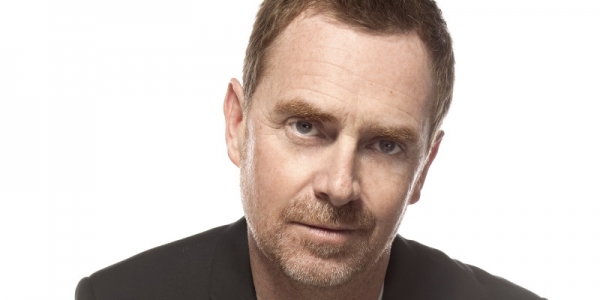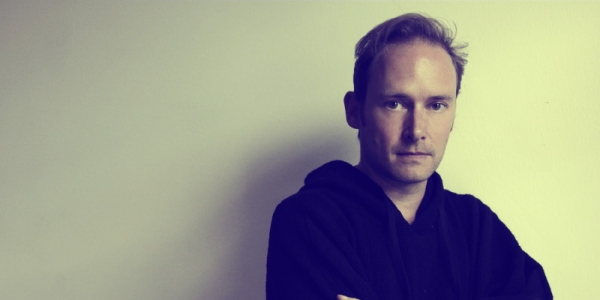Starting his career in the fertile grounds of Bristol’s illustrious music scene, Warren established himself as a DJ, scoring gigs in the biggest clubs and landing the job as tour DJ for Massive Attack. As the tail end of the UK’s rave culture coiled up, Warren was at the helm of a new and exciting genre of dance music that would go on to define him as an artist. The term ‘progressive house’ was used to give name to an emerging sound that bound together a select group of DJs, bands and producers of which Warren was a part. Progressive was a fusion of house, trance and elements of techno. Stripped down and sparing in its structure – melodic and uplifting yet hard, fierce and driving.
As you’d expect, Warren’s music has changed over the years, but depth and melody have remained hallmarks of his sound, which today spans everything from spacey ambient electronics to club-focused dubby techno. While there are plenty of other DJs and producers whose careers have followed a similar path, it is Warren’s global reach that sets him apart from the rest. From outer eastern Russia to central China, northern most Scandinavia to the depths of South America, Warren puts the ‘international’ in international DJ – his appeal knows no borders.
This has not happened just by chance. Throughout his career Warren has worked hard to build his intercontinental appeal, a strategy that has been well supported by his involvement in the acclaimed Global Underground compilation mix series, of which he has been behind seven installments. One of the more ‘off the beaten track’ places that Warren visits regularly is Tel Aviv. With the recent developments in the Israel-Gaza conflict, is it strange for him to see the reports of bombings and violence happening in a city where most of the time he’s been there has been spent playing music to happy clubbers?
“It’s weird,” he ponders. “I’d say all of the best parties, or lots of the best parties, have always been in areas of conflict. Northern Ireland back in the day with the trouble – the club scene was always really strong, Tel Aviv has always had a good scene and I’d say even better is Beirut. Beirut has got a fantastic club scene, really cool clubs, nice underground people, really stylish, and even with the recent downturn in the economy when people have got no money they still want to go out. It’s almost as if they’ll go without food and not pay their bills, but they still want to go out at the weekend and enjoy themselves and maybe forget what’s going on around them. So yeah, areas where there is conflict going on always seem to have great scenes.”
It’s hard to say exactly why Warren is so popular in lands so far from the one he calls home, although according to the man himself, differing musical tastes come down to different musical education.
“My favourite crowds are in Argentina,” he says without a moment’s hesitation. “In the early days, and to a certain extent now, the DJs that visited there were kind of controlled by a guy called Martin Gontad, who is Hernan Cattaneo’s manager and he also runs a big radio station in Argentina which plays great underground music. So the crowds there have kind of been educated in a deeper underground sound and that’s what they love. If you go to China for instance, where there isn’t that history of underground of radio or coolness, then the more commercial Afrojack, David Guetta sound is going to be the big thing because that’s all thy get on the radio and TV. It’s like all things in life, it’s education really, it’s what you get to hear in your formative years that kind of molds you into what kind of stuff you’re into. So certain countries where there is a history of underground music – that scene has stayed strong and where there is less of that then not so much. But obviously the big change now has been internet radio where its just broadcast round the world so local radio isn’t as important for focusing people.”
Internet radio is something that Warren can speak on with authority. For the last two years he’s been broadcasting his Soundgarden show on online radio station Frisky, regularly attracting large audiences who tune in or download the show from wherever they are in the world.
“A number of stations had been after me to do a show,” he explains of his first foray into this new platform. “I looked at it and I thought well, pretty much all the shows out there are the same; it’s just a DJ playing club music for an hour or two. So I specifically wanted to do something that was in the first hour really eclectic and almost like an unmixed thing. It’s not about beats all going together, I just wanted to play the first hour of just amazing records whether it’s sort of ambient, or down tempo and then concentrate on the more club based stuff for the second hour. It’s gone really well, it’s pretty much the most popular show on Frisky since the start and I think the first hour is definitely what people find exciting about it. I just think its more interesting, people are taking more risks with that than they are with club music. There’s some great club music out there but then, especially at the moment, with that whole sort of bass heavy, deep house, old school ‘90s house vibe, it’s all very similar at the moment and it’s harder for people to take more risks but whereas with the more eclectic side of electronic music you can basically do anything you want. I’ve got the Renaissance album coming out in January and I’ve based that around the radio show, it’s the same thing really, CD1 is very sort of out there and ambient and weird and CD2 is more club based.”
As one of the longest serving DJs out there and with no sign of the global demand for his appearances slowing down, Warren continues the busy touring schedule he’s been doing for all these years. However, that’s not to say he hasn’t made some adjustments to how he does his job these days. “Well I don’t go to after parties any more,” he laughs. ”I think these days it’s seen as a much more of a professional job than it was in the early days when we all just sort of fell into it, kind of by accident and ended up flying round the world, playing in clubs and having a great time. It’s still great fun to do it, getting to travel round, go to all these amazing countries, meet great people and play in great clubs.”
BY RICHIE MELDRUM

